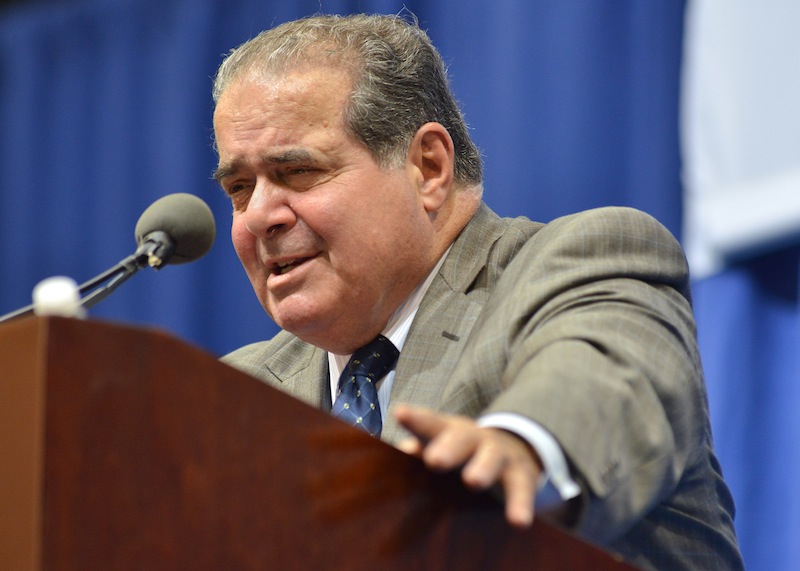HONOLULU (AP) — U.S. Supreme Court Justice Antonin Scalia told law students at the University of Hawaii on Monday that the nation’s highest court was wrong to uphold the internment of Japanese-Americans during World War II, but he wouldn’t be surprised if the court issued a similar ruling during a future conflict.
Scalia was responding to a question about the court’s 1944 decision in Korematsu v. United States, which upheld the convictions of Gordon Hirabayashi and Fred Korematsu for violating an order to report to an internment camp.
“Well of course Korematsu was wrong. And I think we have repudiated in a later case. But you are kidding yourself if you think the same thing will not happen again,” Scalia told students and faculty during a lunchtime Q-and-A session.
Scalia cited a Latin expression meaning, “In times of war, the laws fall silent.”
“That’s what was going on — the panic about the war and the invasion of the Pacific and whatnot. That’s what happens. It was wrong, but I would not be surprised to see it happen again, in time of war. It’s no justification, but it is the reality,” he said.
Avi Soifer, the law school’s dean, said he believed Scalia was suggesting people always have to be vigilant and that the law alone can’t be trusted to provide protection.
Soifer said it’s good to hear Scalia say the Korematsu ruling was wrong, noting the justice has been among those who have reined in the power of military commissions regardless of the administration.
“We do need a court that sometimes will say there are individual or group rights that are not being adequately protected by the democratic process,” Soifer said.
Scalia was appointed to the nation’s highest court in 1986, making him the longest-serving justice currently on the court.
The 77-year-old spoke after teaching a class. He didn’t take questions from media.
Copyright 2014 The Associated Press. All rights reserved. This material may not be published, broadcast, rewritten or redistributed.






